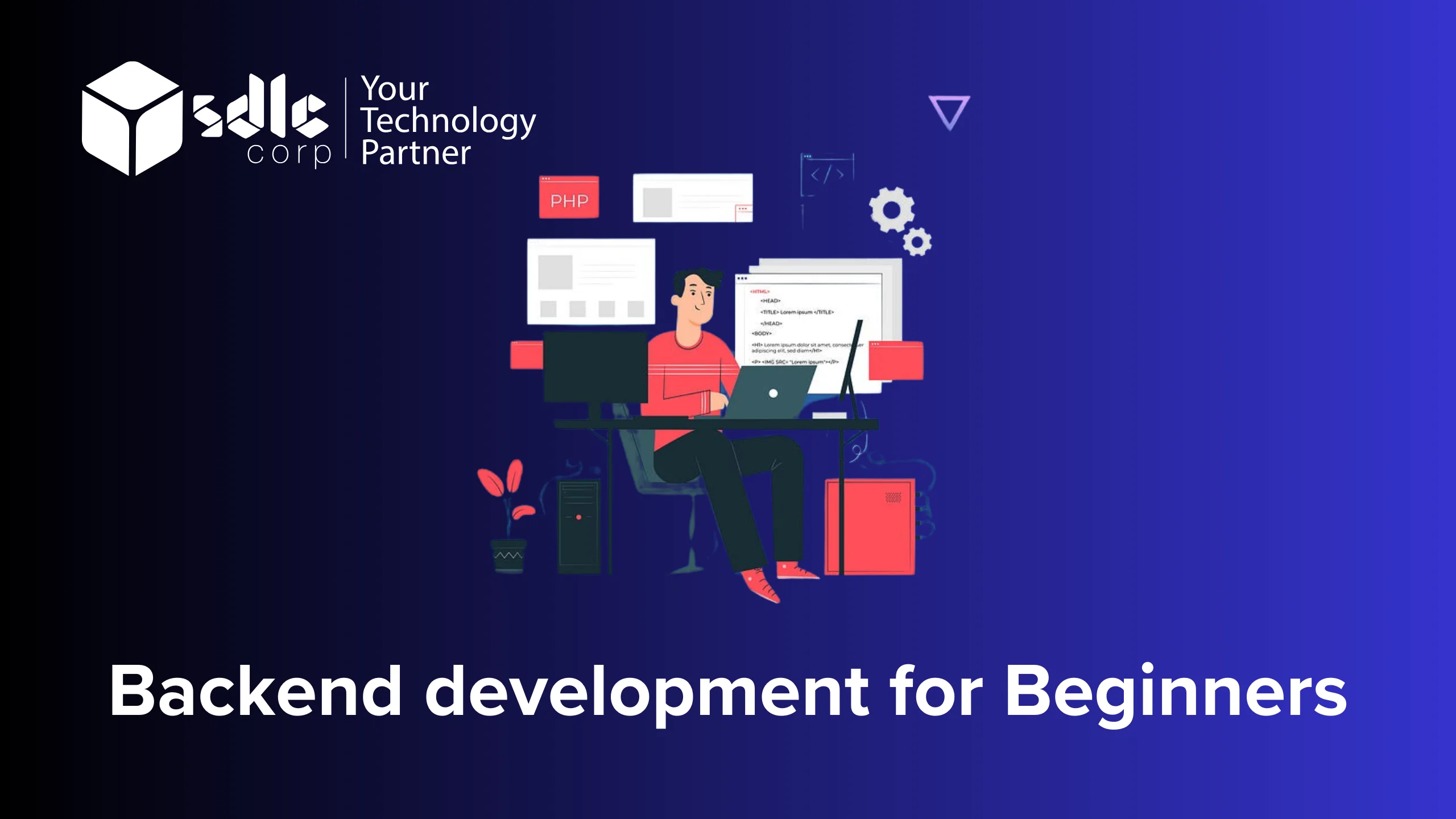Introduction
The world of gaming has undergone a seismic shift over the past decade, and few areas demonstrate this transformation better than slot game development. From traditional lever-pulled machines in smoky casinos to immersive, multi-layered experiences in online platforms, the slot game industry is booming. And at the heart of this evolution lies a powerful force: Artificial Intelligence (AI) and Machine Learning (ML).
These advanced technologies are not just buzzwords — they’re game changers. By optimizing design, enhancing user experience, increasing engagement, and personalizing gameplay, AI and ML are redefining what it means to play a slot game. This blog explores how AI and machine learning are reshaping the future of slot game development, turning simple games of chance into intelligent, adaptive entertainment platforms.
1.Understanding AI and Machine Learning in Gaming
Before exploring how these technologies shape slot games, it helps to define the core concepts. Artificial Intelligence (AI) refers to systems that imitate human intelligence and perform tasks such as learning, reasoning, and problem-solving. Machine Learning (ML), a key branch of AI, uses algorithms to study data, identify patterns, and make decisions with little human input.
Many teams rely on advanced AI development services and the expertise of an experienced ML development company to bring these capabilities into modern gaming systems. In practice, these technologies help developers understand player behavior, improve game design, predict outcomes, and reduce fraud across digital casino environments.
2.The Evolution of Slot Games: From Luck to Intelligence
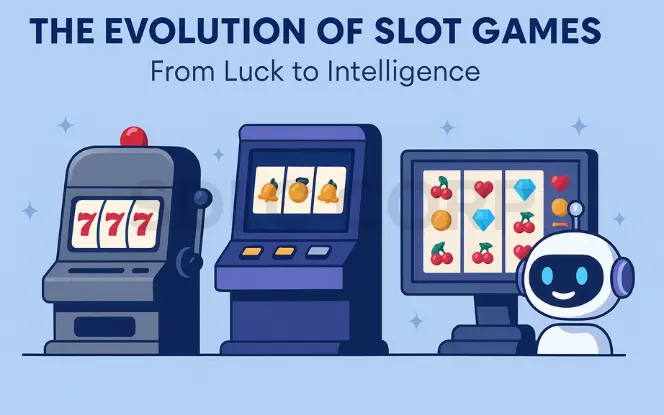
Traditionally, slot machines operated purely on random chance. Symbols spun on reels, and outcomes were determined by Random Number Generators (RNGs). While RNGs still form the basis of fairness in slot games, AI is now being layered on top to enhance the user experience and game dynamics.
Today’s players expect more than spinning reels — they want dynamic storylines, customized interfaces, and interactive gameplay. AI is enabling these elements by turning static slot games into adaptive environments that evolve with the player.
3.Personalized Gaming Experiences
One of the most powerful contributions of AI in slot game development is the ability to personalize gameplay. Machine learning algorithms analyze user data such as:
- Time spent playing
- Preferred game themes
- Betting patterns
- In-game behaviors
Based on this, the system can tailor content for individual users. For example:
- Players who enjoy high volatility games may recommend similarly thrilling titles.
- Casual players might be offered games with simpler mechanics and more frequent (but smaller) wins.
This personalization leads to higher engagement, satisfaction, and retention — crucial KPIs in the competitive gaming space.
4.Dynamic Difficulty Adjustment (DDA)
Borrowing from video game mechanics, AI now enables Dynamic Difficulty Adjustment in slot games. DDA adjusts the challenge level in real-time based on a player’s skill or engagement level.
- If a player is losing interest, the game may adjust the frequency of smaller wins to maintain excitement.
- For a highly engaged player, the system might introduce more complex bonus rounds to increase challenge and reward.
This keeps the game fresh and enjoyable, encouraging longer play sessions without compromising fairness.
5.Enhanced Game Design and Storytelling
AI tools are assisting game designers in crafting better themes, storylines, and visuals for slot games. ML algorithms can analyze market trends, user reviews, and competitor titles to help developers identify:
- Popular themes (e.g., mythology, space, treasure hunts)
- Preferred game mechanics (e.g., cascading reels, multipliers)
- Optimal soundtracks and animations
AI can even be used to automatically generate visual assets or suggest combinations that appeal to specific demographics, streamlining the creative process in slot game development.
6.Predictive Analytics for Player Behavior
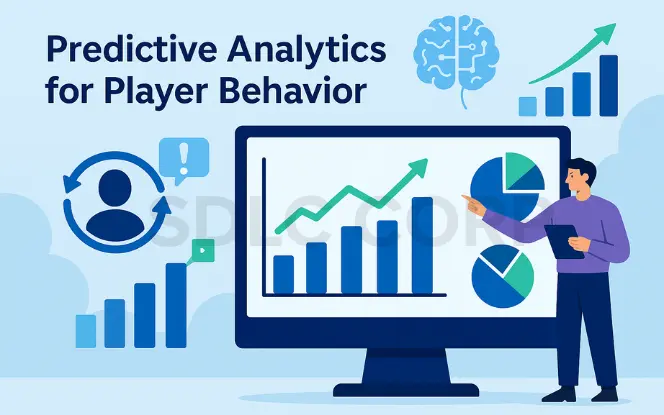
Predictive analytics is another major application of AI in slot gaming. Using ML models, developers and operators can forecast:
- Player lifetime value (LTV)
- Probability of churn
- Risk of problematic gambling behavior
This insight allows game developers to:
- Optimize monetization strategies
- Offer timely bonuses or incentives
- Provide responsible gaming interventions for at-risk users
By understanding future behavior, operators can make proactive decisions, enhancing both player satisfaction and business success.
7.AI-Driven Customer Support
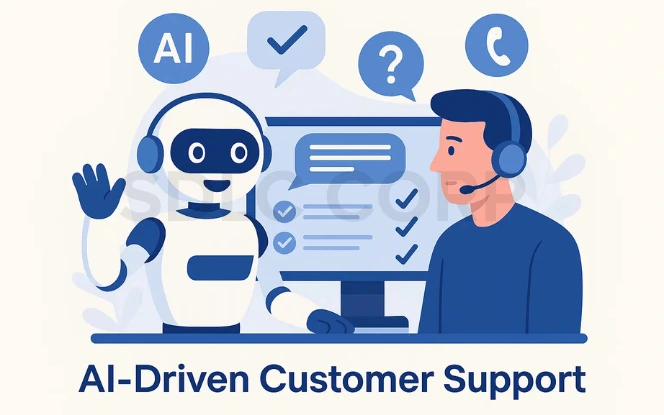
Modern slot platforms integrate AI-powered chatbots for 24/7 customer support. These bots can handle a wide range of issues including:
- Account verification
- Payment troubleshooting
- Game recommendations
By using Natural Language Processing (NLP), chatbots can understand player queries in real-time and offer personalized responses, freeing up human agents to focus on complex issues. This improves the overall user experience and builds trust between players and platforms.
8. Cheating and Fraud Detection
The growth of online gaming has also led to a rise in fraudulent activity. To counter this, AI and ML systems are being used to detect issues such as:
Irregular betting behavior
Account takeover attempts
Automated bot activity
Advanced models learn from past incidents and quickly identify suspicious actions as they occur. This approach mirrors the effectiveness seen in solutions like AI based fraud detection in online rummy, where real-time analysis plays a crucial role in protecting users. By flagging risks instantly, these systems help maintain a secure and fair environment for every player.
9.Optimizing In-Game Economy and Bonus Systems
Slot games are more than reels and symbols; they include complex economies built on coins, tokens, and bonuses. AI algorithms can manage and optimize:
- Bonus frequency
- Reward values
- Progression systems
For instance, if a player typically stops playing after losing a certain amount, the system might trigger a bonus or free spins feature at the right moment to encourage continued engagement.
This level of intelligent reward distribution maximizes both user retention and revenue generation.
10.Real-Time Analytics and A/B Testing
Slot game developers often rely on A/B testing to improve their games. AI accelerates this process by:
- Running multiple tests simultaneously
- Quickly identifying the best-performing features
- Adjusting parameters in real-time based on player feedback
By leveraging AI-powered analytics, developers can make data-driven decisions faster and more efficiently than ever before, drastically reducing time-to-market for new titles.
11.AI in Sound and Visual Effects
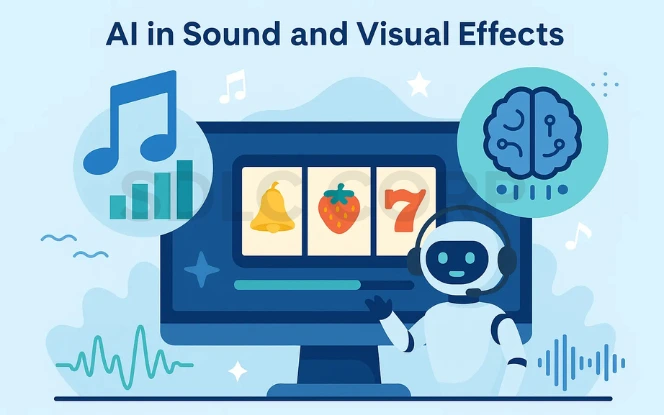
AI is now being used to craft soundtracks and visual effects that adapt to gameplay. For example:
- A suspenseful soundtrack intensifies during near-miss spins
- Vibrant animations are triggered during jackpots or big wins
These sensory enhancements improve immersion and make the player’s journey more memorable — a key factor in standing out in a saturated market.
12.Ethical Considerations and Responsible Gaming
As powerful as AI is, it must be used responsibly. Slot games are inherently addictive, and the use of AI could intensify this risk if not managed carefully.
That’s why leading developers are embedding AI tools for:
- Real-time tracking of risky behaviors
- Offering self-exclusion options
- Sending alerts or suggestions for breaks
This promotes a sustainable gaming ecosystem that benefits both players and operators.
13. What the Future Holds
AI and machine learning are still in their early phases in the context of slot game development. The next wave of innovation could include:
- Voice-activated slots
- Augmented Reality (AR) slot environments
- Emotion recognition for real-time adaptation
- Fully AI-generated slot games
As 5G, cloud gaming, and wearable tech expand, the possibilities for AI-powered slots are virtually limitless.
Conclusion
AI and machine learning are not only transforming slot game development — they are redefining what a slot game can become. By combining intelligence with creativity, personalization with fairness, and automation with thoughtful design, these technologies create experiences that feel smarter, safer, and far more engaging. Similar innovations can also be seen in areas such as artificial intelligence lottery software, where adaptive systems enhance transparency and user trust.
For developers, this shift invites a more data-driven approach to creativity. For players, it delivers gameplay that feels richer, more immersive, and tailored to their style. And for the wider industry, it marks the start of a new era — one where slot games don’t just spin; they learn, adapt, and evolve.
FAQ
What role does AI play in modern slot games?
AI personalizes gameplay, enhances visuals and sound, adjusts difficulty, and provides real-time analytics to improve player engagement.
How is machine learning used in slot game development?
ML analyzes player data (like play patterns and preferences) to predict behavior, optimize game features, and reduce churn.
Can AI improve the fairness of slot games?
Yes, AI doesn’t change the core randomness (RNGs), but it enhances fairness by detecting fraud and ensuring a level playing field.
How does AI enhance the player experience?
AI creates customized experiences with targeted bonuses, preferred themes, and dynamic gameplay tailored to individual behavior.
Is AI used for responsible gaming?
Absolutely. AI helps monitor risky behaviors, enabling timely alerts, self-exclusion tools, and promoting healthier play habits.





